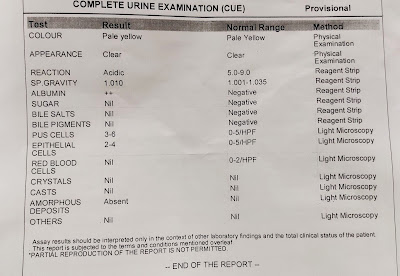8th December 2023
Thursday, 7 December 2023
Osce questions and learning points.
Wednesday, 6 December 2023
76 yr old female with pedal edema.
6th December 2023
This is an online e log book to discuss our patient de-identified health data shared after taking his / her / guardians informed consent. Here we discuss our individual patients problems through series of inputs from available global online community of experts with an aim to solve those patients clinical problem with collective current best evident based input.
This E blog also reflects my patient centered online learning portfolio and your valuable inputs on the comment box is welcome.
I have been given this case to solve in an attempt to understand the topic of " patient clinical data analysis" to develop my competency in reading and comprehending clinical data including history, clinical findings investigations and come up with diagnosis and treatment plan.
Date of admission - 6th December 2023
A 76 year old lady home maker by occupation resident of nalgonda came to opd with chief complaints of
Pedal edema and shortness of breath since 4 days.
Decreased urine output since 4 days.
History of present illness:
She was apparently asymptomatic 1 month back then developed loss of appetite, indigestion, nausea and vomitings since 1 month for which she was taken to hospital and found to have raised urea and creatinine levels and was suggested to get dialysis done.
she presented with bilateral pedal edema pitting type extending upto the knee since 4 days.
Shortness of breath grade(1-2) since 4 days.
No history of chest pain and palpitations.
No history of burning micturition.
Daily routine before the onset of disease:
wakes up at 6:00 am.
Does all the household works like cooking, and cleaning utensils and tailoring work.
1-2 pm - eats lunch, sleeps after having lunch.
wakes up at around 4:00 pm does some stitching work or watches Tv.
Dinner around 8pm and sleeps after dinner.
Past history:
Known case of hypertension since 4 years and on medication clinod-t (clinidipine 10mg and telmisartan 40 mg).
Not a known case of DM, asthma, TB, epilepsy, CAD, CVD and thyroid diseases.
Personal history:
Diet :mixed
Appetite: decreased
Bowel and bladder movements regular
Sleep: adequate
No allergies and addictions
Family history: not significant
General examination:
Patient is conscious, coherent and cooperative.
Well oriented to time and place.
Moderately built and nourished.
Pallor- absent
Icterus - absent
No clubbing, cyanosis and lymphadenopathy.
Pedal edema- present
Temp: 98.2 f
Bp: 120/80mm hg
PR: 88 bpm
RR: 16cpm
Systemic examination:
CVS:s1s2+,no murmur
RS:BAE+,no added sounds
P/A:
Inspection: Shape of abdomen- slightly distended.
Position of umbilicus: central and inverted
No scars and sinuses are present
All quadrants are moving equally with respiration
Palpation:No tenderness
No organomegaly
Auscultation:
Bowel sounds heard
CNS: NFD
Investigations:
ECG:
Provisional diagnosis - chronic kidney disease on mhd.
Treatment given-
Osce questions and learning points.
8th December 2023 Osce questions: 1) Hypertension causing chronic kidney disease vs chronic kidney disease leading to hypertension? Chron...
-
6th December 2023 This is an online e log book to discuss our patient de-identified health data shared after taking his / her / guardians ...
-
8th December 2023 Osce questions: 1) Hypertension causing chronic kidney disease vs chronic kidney disease leading to hypertension? Chron...
-
1st September 2022 This is online E log book to discuss our patient’s de-identified health data. Here we discuss our individual patient’s pr...












